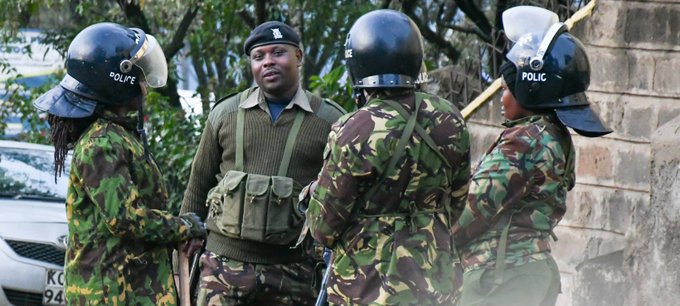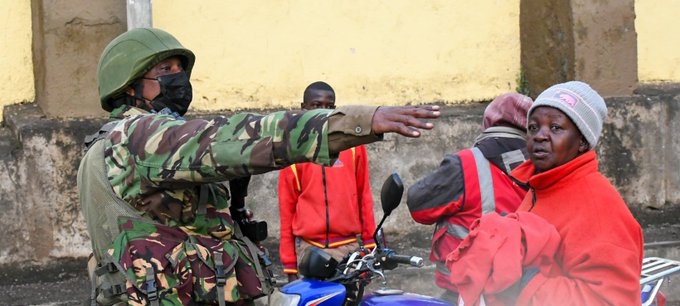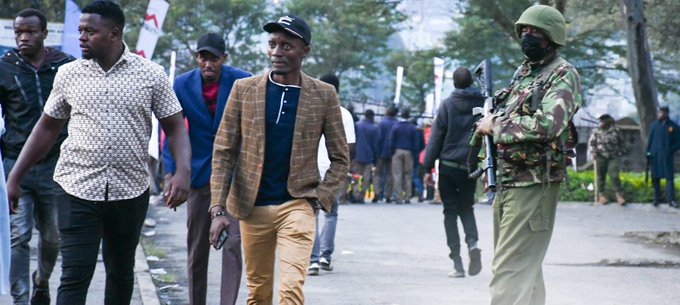Nairobi, kenya- What happens when a high school play dares to touch the political nerve? At Butere Girls High School, it gets complicated—fast.
A teacher is now under scrutiny after allegedly altering the script of Echoes of War, a school production that was performed during the Regional Drama Festivals on March 22 at Chavakali High School.
The school’s chief principal issued a formal show cause letter on March 25, demanding the teacher explain why disciplinary action should not be taken over what’s being described as “unauthorised anti-government content.”
Police have been heavily deployed at Melvin Jones School ahead of Butere Girls’ staging of the controversial play Echoes of War.Journalists have been barred from the venue#MainaAndKingangi
According to the letter, the version of the play approved at the County Festival at Bulimbo Girls High School on March 18 was substantially different from what audiences saw at the regional level.
This newer version included student actors holding placards and banners reading “Occupy Space,” “SHA,” and “Cash Cow”—terms the principal claims carry politically charged implications.
The teacher now has seven days to respond in writing, with the possibility of further disciplinary action looming.
Creative Expression or Political Statement?
The drama around the drama didn’t end there.
The play, written by former Kakamega Senator Cleophas Malala, had already been under the spotlight after being banned from festival stages over its content—only to be reinstated by a High Court ruling that allowed it to proceed.
BREAKING NEWS Tension flared at Melvin Jones School after Butere Girls students declined to perform the controversial play Echoes of War, citing denial of access to a public address system.The students sang the national anthem before exiting the stage. The play Echoes of War
Then came more theatrics: Malala was briefly detained by police, sparking a boycott from the student cast, who refused to perform without his presence. He was later released.
Interior Cabinet Secretary Kipchumba Murkomen weighed in, saying the government has no issue with Echoes of War per se.
His concern? Political figures influencing school platforms. Murkomen stressed the need to keep education free from partisan agendas and promised that any overreach by officials would be addressed.
All this has reignited a national conversation around censorship, youth activism, and where exactly the line between artistic freedom and political interference should be drawn in schools.
Let’s break it down: At the center of this controversy is a school performance that dared to explore themes of governance, technology, and youth engagement.
The disciplinary process will unfold behind closed doors, but public debate has already spilled out onto social media, editorial pages, and online forums. Many are asking: If students can’t engage with real-world issues through art, where else can they?
Whether you see it as a breach of protocol or a bold act of protest, one thing’s for sure—Echoes of War is now echoing far beyond the stage.






